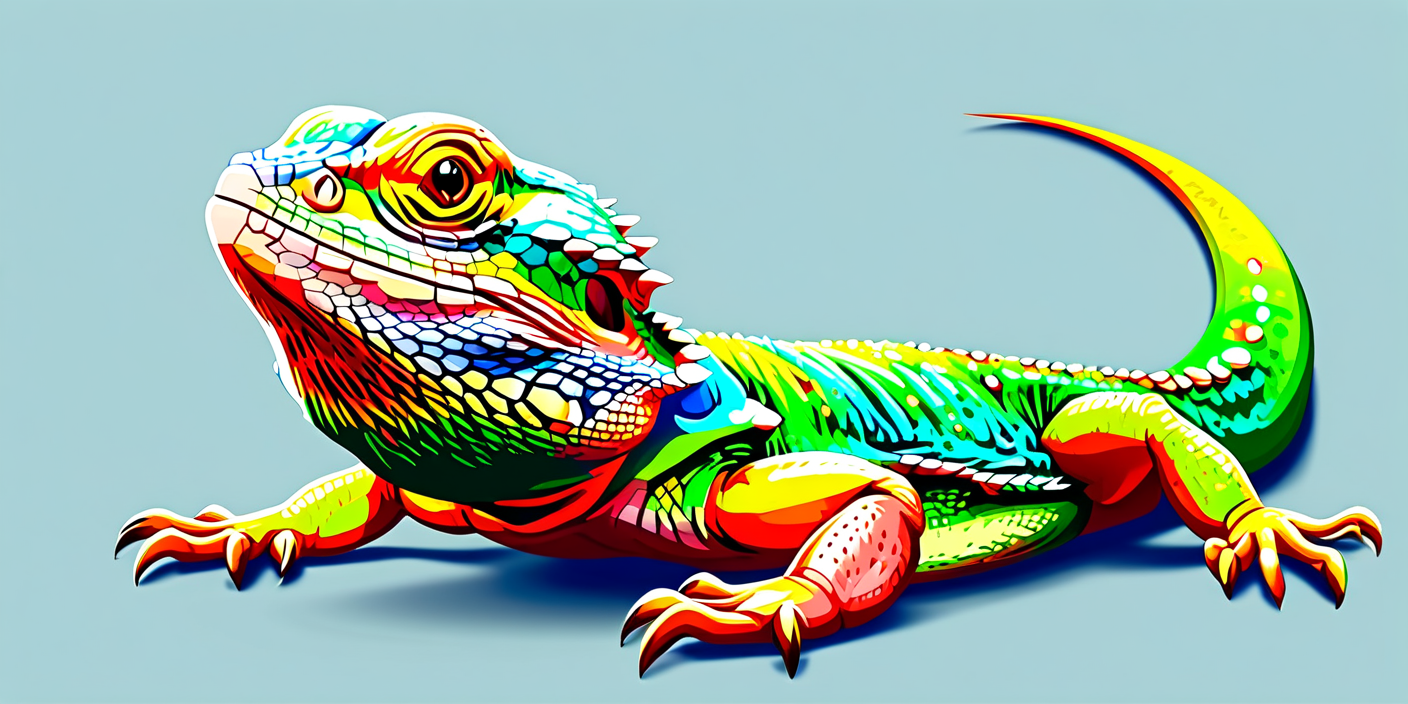Understanding Bearded Dragon Lifespan
Bearded dragons, with their charming personalities and captivating appearance, have become increasingly popular pets. But before welcoming one into your home, understanding their lifespan is crucial. Knowing how long these fascinating reptiles can live helps you commit to providing the long-term care they need. While a simple answer might be “8-12 years,” the reality is more nuanced. Several factors influence a bearded dragon’s lifespan, and understanding these factors is key to ensuring your scaly friend enjoys a long and healthy life.
Average Lifespan
In ideal conditions, with proper care and a healthy diet, a bearded dragon can live for 8 to 12 years. However, some have been known to live even longer, exceeding 14 years in exceptional cases. This longevity highlights the importance of responsible ownership and commitment to their well-being.
Factors Affecting Lifespan
Several factors significantly impact the lifespan of a bearded dragon. These include:
- Genetics: Just like humans, some bearded dragons are naturally predisposed to longer lifespans than others. Breeding practices also play a role, with some lines potentially being more robust than others.
- Diet: A balanced and nutritious diet is paramount. A diet lacking essential nutrients can lead to various health problems, significantly reducing lifespan. This includes a proper balance of insects, leafy greens, and occasional fruits and vegetables.
- Housing and Environment: The correct temperature gradient, proper UVB and UVA lighting, and a spacious enclosure are essential. Inadequate housing can lead to stress, metabolic bone disease (MBD), and other health issues that shorten lifespan.
- Handling and Stress: While handling is important for bonding, excessive or rough handling can stress your dragon. Stress weakens the immune system, making them more susceptible to illness.
- Veterinary Care: Regular check-ups with a reptile veterinarian are crucial for early detection and treatment of any health problems. Early intervention significantly improves the chances of a longer lifespan.
- Hygiene: Maintaining a clean enclosure is vital. Bacteria and parasites can thrive in unsanitary conditions, leading to infections and illness.
Maximizing Your Bearded Dragon’s Lifespan
While genetics play a role, you can significantly influence your bearded dragon’s lifespan through responsible care. Here’s how:
Optimal Housing and Environment
Creating the right environment is crucial. This involves:
- Temperature Gradient: Provide a basking spot with temperatures reaching 100-110°F (38-43°C) and a cooler end around 75-85°F (24-29°C).
- UVB and UVA Lighting: UVB light is essential for calcium absorption, preventing MBD. UVA light helps with their overall well-being and behavior.
- Spacious Enclosure: Ensure your enclosure is large enough for your dragon to comfortably move around, climb, and bask.
- Substrate: Choose a safe substrate that won’t be ingested and cause impaction.
Nutrition and Diet
A well-balanced diet is the cornerstone of a long and healthy life for your bearded dragon. Focus on:
- Insects: Crickets, dubia roaches, and other insects should form the majority of their diet. Dust insects with calcium and vitamin D3 supplements.
- Leafy Greens: Offer a variety of leafy greens, such as collard greens, mustard greens, and turnip greens.
- Fruits and Vegetables (in moderation): These should be offered sparingly as treats.
- Hydration: Ensure access to fresh, clean water at all times.
Health and Preventative Care
Regular veterinary check-ups are vital for early detection of any health problems. Also:
- Observe your dragon daily: Look for any changes in behavior, appetite, or appearance.
- Maintain a clean enclosure: Regular cleaning prevents the build-up of bacteria and parasites.
- Handle your dragon gently: Avoid excessive or rough handling to prevent stress.
Understanding Potential Health Issues
Several health issues can shorten a bearded dragon’s lifespan. Knowing the signs and seeking veterinary care promptly is essential.
Metabolic Bone Disease (MBD)
MBD is a common condition caused by insufficient calcium and UVB light. Symptoms include weakness, bone deformities, and lethargy.
Parasites
Internal and external parasites can weaken your dragon and lead to various health problems.
Respiratory Infections
Respiratory infections can be life-threatening if not treated promptly. Symptoms include wheezing, nasal discharge, and lethargy.
Impaction
Impaction occurs when indigestible material blocks the digestive tract. It’s often caused by inappropriate substrate or ingestion of foreign objects.
Final Thoughts
The lifespan of a bearded dragon is a testament to responsible ownership. While genetics play a part, providing a healthy diet, appropriate housing, regular veterinary care, and a stress-free environment significantly impacts their longevity. By understanding the factors affecting their lifespan and actively working to provide optimal care, you can help your bearded dragon live a long, happy, and healthy life, enjoying many years of companionship with this fascinating reptile.

